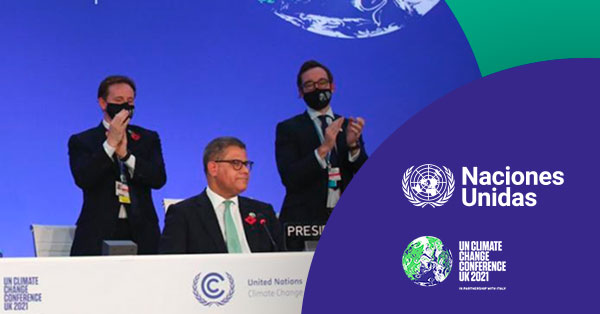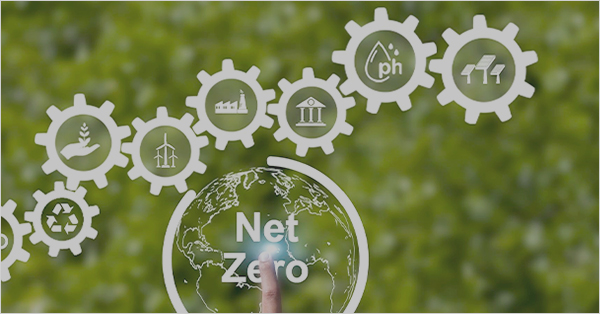
Six years after the Paris Agreement, and with climate impacts increasingly being felt around the world, COP26 was a first test of the agreement’s “ambition mechanism” to increase countries’ mitigation pledges over time.
During COP26, some of the first manifestations of the response to the commitment demanded of world leaders to produce decisions aimed at delivering a radical transformation on a planetary scale became increasingly visible.
Among the salient features that reveal a substantive shift in the political momentum driving the negotiations so far is the generation of alliances and coalitions to push for substantive changes in key sectors of the real economy in terms of their greenhouse gas emissions, especially in Latin America and the Caribbean: land use and forest protection, fuel extraction and energy generation, and urban and freight transport.
As part of the high-level activities of COP 26, the Global Leaders Summit event, dedicated to Action on Forests and Land Use, made it possible to build an almost unprecedented alliance of national governments, non-state actors, corporations and more than 30 financial institutions. The political commitment involves countries that account for approximately 90% of the world’s forests and is made tangible in a common declaration. The “Glasgow Leaders’ Declaration on Forests and Land Use” of 3 November 2021, initially signed by 128 countries, commits signatory countries to work collectively to halt and reverse forest loss and land degradation by 2030, while enabling sustainable development and promoting inclusive rural transformation. In addition to the goal of halting deforestation and reversing forest loss by 2030, the Declaration includes a commitment by 12 donor countries to provide $12 billion in public climate finance between 2021 and 2025 to capitalise on a new Global Forest Finance obligation to support action in developing countries, including restoring degraded lands, tackling forest fires, and advancing the rights of indigenous peoples and local communities. In addition, a complementary commitment by 14 countries and philanthropic donors has pledged $1.7 billion between 2021 and 2025 to promote the land tenure rights of Indigenous Peoples and local communities to support their role as stewards of forests and nature. In addition, at least $7.2 billion has been mobilised from the private sector to increase the amount of funds available for action on forest conservation[1]. It remains to be seen what the institutional arrangements will be for managing these funds and the requirements associated with accessing resources.
In addition, the Global Methane Pledge was launched, also with a focus on 2030, which was launched by the EU and the US and quickly added 103 signatories, including countries that emit almost 50% of all methane emissions, among them Brazil, Nigeria and Canada. The global goal of the partnership is to reduce 30% methane emissions by 2030 from 2020 levels. The main focus of the proposed actions is on the fossil fuel industry. However, some significant emitters are not part of the announced commitment, including India, China and Russia, which are among the top five methane emitters, which could limit the scope of the results that could be achieved.
In the same logic of showing commitments, the COP 26 Presidency produced a new “Global Coal to Clean Power Transition Statement“, by which almost 190 countries commit to expand clean energy and ensure a just transition while eliminating the use of coal. For their part, major financial institutions, participants in the agreement, pledge to stop financing new coal-fired power plants from 2021, while 25 countries and public financial institutions pledge to stop supporting the coal-fired power sector by the end of 2022.
In this regard, also 33 governments – including Chile, El Salvador, Paraguay, Dominican Republic, and Uruguay, and a number of Latin American cities – committed to accelerate the transition to 100% zero emission vehicles and vans, thus ending the sale of non-electric cars after 2035 (2040 in developing countries). As part of this commitment, financial institutions confirmed their support by making capital and financial products available to key stakeholders to enable this transition.
COP26 has driven commitments in key sectors of the economy, allowing a glimpse of the transition from promises to the transformation of the real economy, which will have impacts from an environmental, social and economic point of view. The countries of Latin America and the Caribbean are part of these efforts while seeking to ensure that the transition to a sustainable economy is made in an equitable manner.
[1] https://www.gov.uk/government/news/over-100-leaders-make-landmark-pledge-to-end-deforestation-at-cop26







 Stay updated on the latest trends of Green Finance
Stay updated on the latest trends of Green Finance


